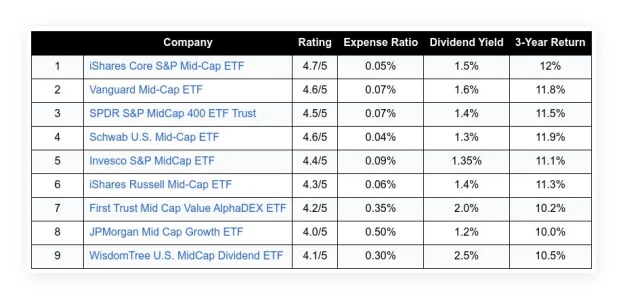Money isn’t just about numbers. While financial decisions often seem rational on the surface, they are deeply influenced by emotions, beliefs, and psychological factors. Understanding the emotional side of money can help us make more informed and balanced decisions about our finances.
This article delves into the psychology of money, exploring the emotional triggers behind spending, saving, and investing, and offers strategies to improve financial well-being.
Table of Contents
ToggleWhy Emotions and Money Are So Tightly Linked
Have you ever found yourself swiping your card a little too enthusiastically? You’re not the only one. Our financial decisions are ultimately deeply influenced by our emotions.
The emotional rollercoaster of money.
Money can trigger many emotions, from joy and excitement to fear and anxiety. These emotions can significantly influence our financial decisions.
As Bari Tessler, a financial therapist and author of The Art of Money Workbook, puts it, “Eighty-five or 90% of our money decisions are based on our emotions.” Understanding our emotional connection to money is key to making sound financial decisions.
The science behind spending sprees.
Neuroscience offers some fascinating insights into financial decision-making. The prefrontal cortex, the brain’s decision-making center, helps us make conscious, rational decisions. In fact, this has led to a new field called neuroeconomics. It examines how economic decision-making occurs in the brain using economics, psychology, and neuroscience.
Emotions, however, can trigger hormones such as cortisol and adrenaline, leading to impulsive behavior.
Furthermore, solely relying on logic isn’t an answer either. Even when their cognitive abilities are intact, people with brain injuries that affect their emotional centers often struggle with financial decisions. In short, this highlights how important emotions are to our finances.
Unmasking the Emotional Architect of Your Finances: The Feeling-First Phenomenon
Often, we make financial decisions based on gut feelings rather than cold, hard logic. While quick and satisfying, this “feeling-first” approach can usually lead to regrettable spending.
The emotional drivers behind your wallet.
Next, let’s examine the key emotions that can affect your financial decisions;
- Fear and anxiety. When one fears scarcity, one may hoard cash or avoid necessary expenses. Conversely, anxiety can lead to impulsive decisions, like selling investments during a downturn.
- Happiness and pleasure. A new purchase can cause a temporary high, often masking underlying stress or dissatisfaction.
- Guilt and shame. In response to financial missteps, avoidance behaviors such as ignoring bills or avoiding financial conversations can result.
- Social comparison. Comparing oneself to others on social media can fuel feelings of inadequacy, leading to unnecessary spending.
- Hope and optimism. Excessive optimism can lead to underestimating risks and overcommitting financially.
By understanding the emotional forces influencing our financial choices, we may be able to make more rational ones. We can manage our finances emotionally through mindfulness, budgeting, and seeking professional advice. As a result, our long-term financial goals can be achieved.
Cognitive Biases and Money
In addition to emotions, cognitive biases also influence how we handle money. Often, these mental shortcuts lead us astray, such as;
- Loss aversion. We tend to fear losses more than we value equivalent gains. Because of this bias, we may resist spending on worthwhile experiences or investments.
- Anchoring. In anchoring, we rely too much on one piece of information. Even if the item isn’t truly a bargain, a “sale” price may seem appealing compared to the original price.
- Present bias. It is common for people to prioritize immediate gratification over long-term rewards. As a result, people may overspend on short-term pleasures while neglecting to save for retirement.
- Confirmation bias. When it comes to money, we often seek information confirming our beliefs. When we believe an investment is good, we are more likely to ignore contrary evidence.
The Role of Financial Socialization
Our attitudes toward money are also heavily influenced by financial socialization. After all, this is how we are taught about money by our families, friends, and society.
For example, children can learn healthy money habits from parents who model financial discipline. However, those who avoid discussing finances inadvertently encourage confusion and fear, which can result in a cycle of generational debt.
Cultural norms also play a role. For example, certain cultures, such as Scandinavian societies, consider discussing money taboo. In this situation, receiving guidance or sharing financial burdens can be difficult.
In general, we can identify unhelpful patterns by understanding these influences.
Mastering Your Money Mindset: How to Make Emotionally Intelligent Financial Decisions
An individual’s “money mindset” is a collection of all the beliefs, attitudes, and emotions related to money. Emotions like fear, anxiety, guilt, and excitement often play a huge role in how people manage their money. How you feel about money influences how you save, spend, and invest.
Fortunately, you can manage your mindset to make smarter choices and achieve your financial goals.
Unmasking your money emotions.
To achieve financial freedom, you must first become self-aware. To do this, you must identify the emotions driving your spending habits. Is shopping your way of coping with stress? Do you avoid bills out of fear? To break negative patterns, you need to understand these emotional triggers.
Mindful spending: a path to financial wellness.
Take a moment to pause before making a purchase and consider: “Is this purchase aligned with my goals?” This simple practice can help you stay on track and reduce impulsive spending.
Set your financial compass.
Setting short-term and long-term financial goals provides a roadmap for your money. Goal-setting keeps you motivated and focused, regardless of whether you save for a dream vacation or pay off debt.
Cultivate a mindset of abundance.
Adopting an abundance mindset opens you up to new opportunities. As a result of this shift, positive thinking and gratitude can promote a more proactive approach to financial planning. Increasing your willingness to take calculated risks can lead to greater financial rewards and growth.
Empower yourself with financial knowledge.
You can use your financial literacy as a superpower. Learn as much as possible by reading books, taking courses, or consulting financial experts. Remember, better financial outcomes result from informed decisions.
Challenge negative beliefs.
Identify your limiting beliefs about money and replace them with positive affirmations.
Be inspired by money.
Ramit Sethi, a financial expert, suggests focusing on what money can buy instead of what you don’t have. Don’t focus only on material things, but also the experiences they afford.
Seek professional support (when needed).
If you are struggling with financial stress or anxiety, you may benefit from seeking the help of a financial therapist. In addition to offering financial expertise, these professionals can also provide psychological support.
With a solid money mindset and implementing these strategies, you can take control of your finances and achieve long-term financial stability.
Conclusion: Building a Healthy Relationship with Money
It takes time to develop a positive relationship with money. Investing, saving, and budgeting are all part of it. As such, this requires balancing emotional awareness with practical strategies. It is also important to review your financial habits and goals regularly to ensure they are aligned with your values and goals.
It is important to remember that money is a tool, not a measure of one’s value. Taking control of one’s finances and creating a life that truly reflects one’s values requires an understanding of the psychological factors that affect one’s financial decisions.
FAQs
What is the psychology of money?
The psychology of money studies how our thoughts, emotions, and behaviors influence our financial decisions. It’s about how our past experiences, cultural background, and values shape our relationship with money.
Why is understanding the psychology of money important?
Understanding money psychology can help us make better financial decisions. It can also help us avoid money mistakes like impulsive spending, fear of risk, and unrealistic expectations.
What are some common money myths?
- More money equals more happiness. While money can provide financial security and certain comforts, it does not guarantee happiness.
- Rich people are greedy. However, they are also often generous philanthropists who give to their communities.
- You need to take big risks to get rich. Saving and investing consistently can build wealth, even though some investments involve risk.
How can I improve my financial mindset?
- Educate yourself. Get a handle on personal finance, investing, and budgeting.
- Set clear financial goals. You can motivate yourself and stay on track when you have specific goals.
- Practice gratitude. Rather than focusing on what you lack, appreciate what you Image have.
- Challenge your limiting beliefs. Replace negative thoughts about money with positive ones.
What are some practical tips for managing money effectively?
- Create a budget. Tracking your income and expenses will help you see where your money is going.
- Automate your savings. Set up automatic transfers to your savings account.
- Pay off high-interest debt as quickly as possible. This includes credit cards and high-interest loan debt.
- Invest for the long term. Mutual funds, stocks, and bonds are all good investments.
- Diversify your investments. To reduce risk, spread your money across different asset classes.
- Seek professional advice. To get personalized advice, talk to a financial advisor.
Image Credit: Ron Lach; Pexels

















